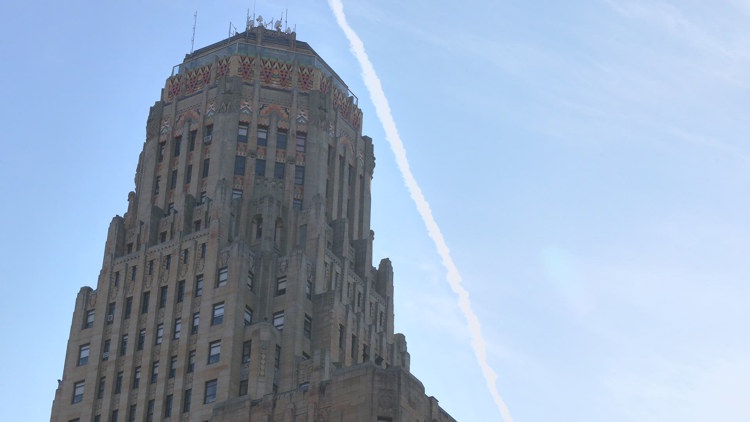Buffalo Officials Target Unpaid User Fees to Address $70M Deficit

Buffalo’s acting mayor, Chris Scanlon, is spearheading efforts to tackle the city’s significant budget deficit, which exceeds $70 million. This financial shortfall is partly attributed to the accumulation of unpaid user fees for city services. Scanlon, who took over from Byron Brown following Brown’s resignation on October 15, 2024, has identified the previous administration’s policy of not actively pursuing unpaid fees as “unsustainable.”
In a recent statement, Scanlon emphasized the need for accountability among ratepayers: “What you saw was a practice of not collecting on those from those ratepayers. And that’s not sustainable.” As part of his strategy, Scanlon has requested a detailed accounting from Buffalo Water regarding the usage of $11 million in funds from the American Rescue Plan Act. Originally intended for a water bill forgiveness program, these funds were redirected to capital projects without the knowledge of the Common Council. This misallocation prompted a special session to amend the city’s spending plan.
Since his appointment, Scanlon has made changes to the Buffalo Water board, including the addition of Brian Gould as deputy mayor. He noted that new board members are uncovering more issues related to the management of funds and services. “Over the course of the last several months, that board’s been in place, they’re discovering additional stuff that keeps coming to my attention,” Scanlon said. He plans to compile this information and share it with both the council and the public.
During the pandemic, Buffalo implemented a policy that halted the pursuit of unpaid user fees across various services, including water and sewer. Although this approach was meant to support residents during difficult times, Scanlon argues that the continuation of this policy into 2022 has led to a widespread issue of non-payment. “We were discovering this, north, south, east, west, everywhere, people weren’t paying and it was being forgiven,” he explained.
In response, city departments have begun sending letters to those who are behind on payments, creating a more structured approach to handle outstanding fees. “That has to exist,” Scanlon asserted, recognizing the financial challenges faced by some residents. Buffalo Water does offer low-income rates and assistance programs, but administration officials indicate that these programs are underutilized.
“There are a half dozen programs that create exemptions or forgiveness,” Scanlon stated. “But what we can’t do is just arbitrarily start forgiving certain ratepayers, because you just run into long-term problems.” Upon taking office, Scanlon found that over $30 million in unpaid user fees remained outstanding.
“This is a service that’s being provided for ‘X amount,’ and it’s your responsibility to pay that amount,” he urged residents. He encouraged those facing difficulties to reach out for assistance. As of now, the city is still determining the total amount owed in outstanding user fees, with officials working diligently to compile accurate figures.
With these measures, the Scanlon administration aims to restore fiscal health to Buffalo and ensure that essential services are adequately funded through responsible collection of user fees.






